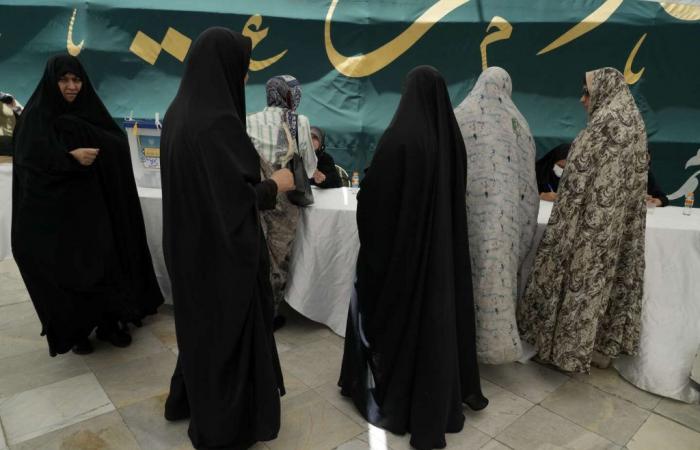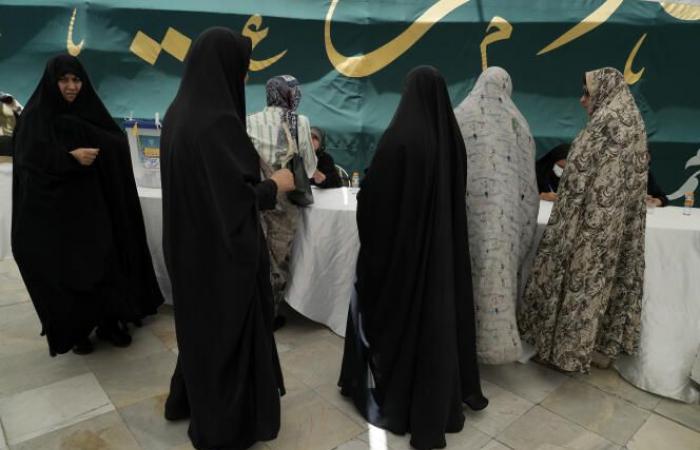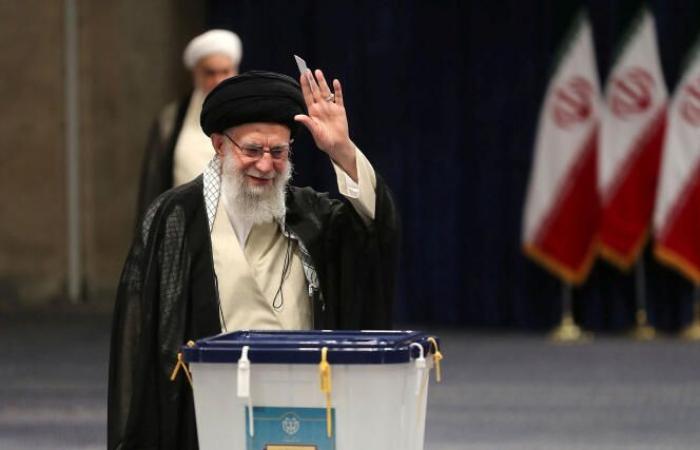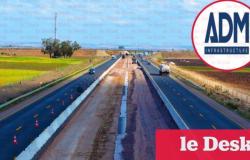Iran’s 61 million voters are called to the polls on Friday, June 28, to elect their new president, a vote organized in haste after the death of President Ebrahim Raisi in a helicopter crash on May 19. The outcome of this presidential election remains uncertain due to the breakthrough of reformist Massoud Pezeshkian, facing divided conservative candidates.
Four men, Massoud Pezeshkian, Mohammad-Bagher Ghalibaf, Saïd Jalili and Mostafa Pourmohammadi, are vying to win the currently vacant post of president. If none of them garners more than half of the votes, a second round will be held on July 5. This scenario has only arisen during one presidential election, in 2005, since the advent of the Islamic Republic 45 years ago.
Official results from the first round are expected no later than Sunday June 30, but estimates could be published as early as Saturday
As is tradition, it was Ayatollah Ali Khamenei who launched the operations by voting, at 8 a.m., in front of dozens of cameras in Tehran. “Election day is a day of joy and happiness for us Iranians”assured the supreme guide. “We recommend to our dear people to take the vote seriously and participate in it. I see no reason to hesitate”he continued.
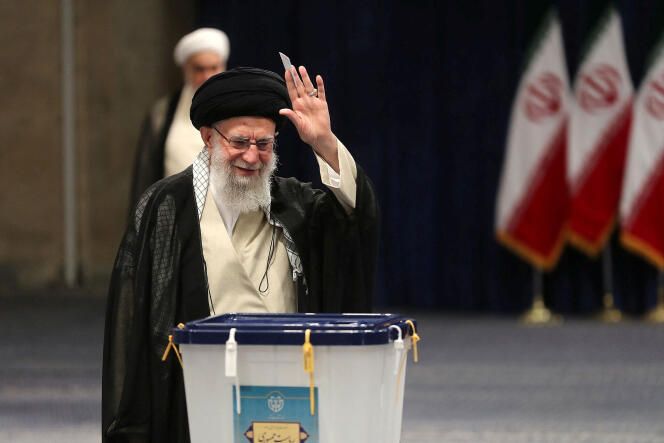
Pezeshkian, alone against two conservatives and a cleric
This presidential election is being closely followed abroad while Iran is at the heart of several geopolitical crises such as the war in Gaza between Hamas and Israel and the nuclear issue, in which it opposes Western countries.
The surprise in this presidential election could come from the only reformist candidate, Massoud Pezeshkian. This 69-year-old MP was virtually unknown when he was authorized to run by the Guardian Council, the authority responsible for supervising the elections. Discreet in appearance but speaking frankly, this doctor of Azeri origin, a minority in northwestern Iran, has given new hope to the reformist and moderate camps, totally marginalized in recent years by the conservatives and ultraconservatives.
Read also | Article reserved for our subscribers In Iran, a reformer’s presidential candidacy attracts some of those who no longer voted
Add to your selections
Facing him, the supporters of the current government are divided between the candidates Mohammad-Bagher Ghalibaf, conservative president of Parliament, and Saïd Jalili, former ultraconservative negotiator of the nuclear issue and hostile to a rapprochement with the West. To hope to win, Massoud Pezeshkian must count on a strong increase in participation compared to the last elections. The last presidential election, in 2021, had gathered only 49% of voters. No major reformist or moderate candidate had been authorized to compete for the post of president during this election.
Whatever the outcome, the election is expected to have limited repercussions because the president has limited powers. He is responsible for applying, at the head of the government, the main political guidelines set by the supreme leader who is currently Ayatollah Ali Khamenei. For him, “the most qualified candidate” to be president had to be “one who truly believes in the principles of the Islamic Revolution” and allows Iran “to move forward without being dependent” foreign countries.
The question of compulsory veiling relaunched
The Supreme Leader, however, clarified that the country should not “cut off relations with the world”. During the debates, the ultraconservative Saïd Jalili criticized the moderates for having signed, in 2015, the Iranian nuclear agreement with the great powers which “did not benefit Iran at all”. “Are we supposed to be eternally hostile to America or do we yearn to resolve our problems with this country? »asked Mr. Pezeshkian, calling for a revival of the nuclear agreement in order to bring about a lifting of the severe sanctions affecting the Iranian economy.
Read also | Article reserved for our subscribers Iran: Sanctions issue hovers over first debate ahead of presidential election
Add to your selections
In addition, the highly sensitive issue of the compulsory wearing of the veil for women has emerged in the campaign. Nearly two years after the vast protest movement that shook the country in 2022, following the death of Mahsa Amini, arrested for non-compliance with the dress code, the debate on the veil has been relaunched.
The World Application
The World Morning
Every morning, find our selection of 20 articles not to be missed
Download the app
In the televised debates, the candidates distanced themselves from the sometimes violent police arrests of women refusing to wear the hijab in public places. “We should under no circumstances treat Iranian women with such cruelty”said Mustafa Pourmohammadi, the only religious candidate.

